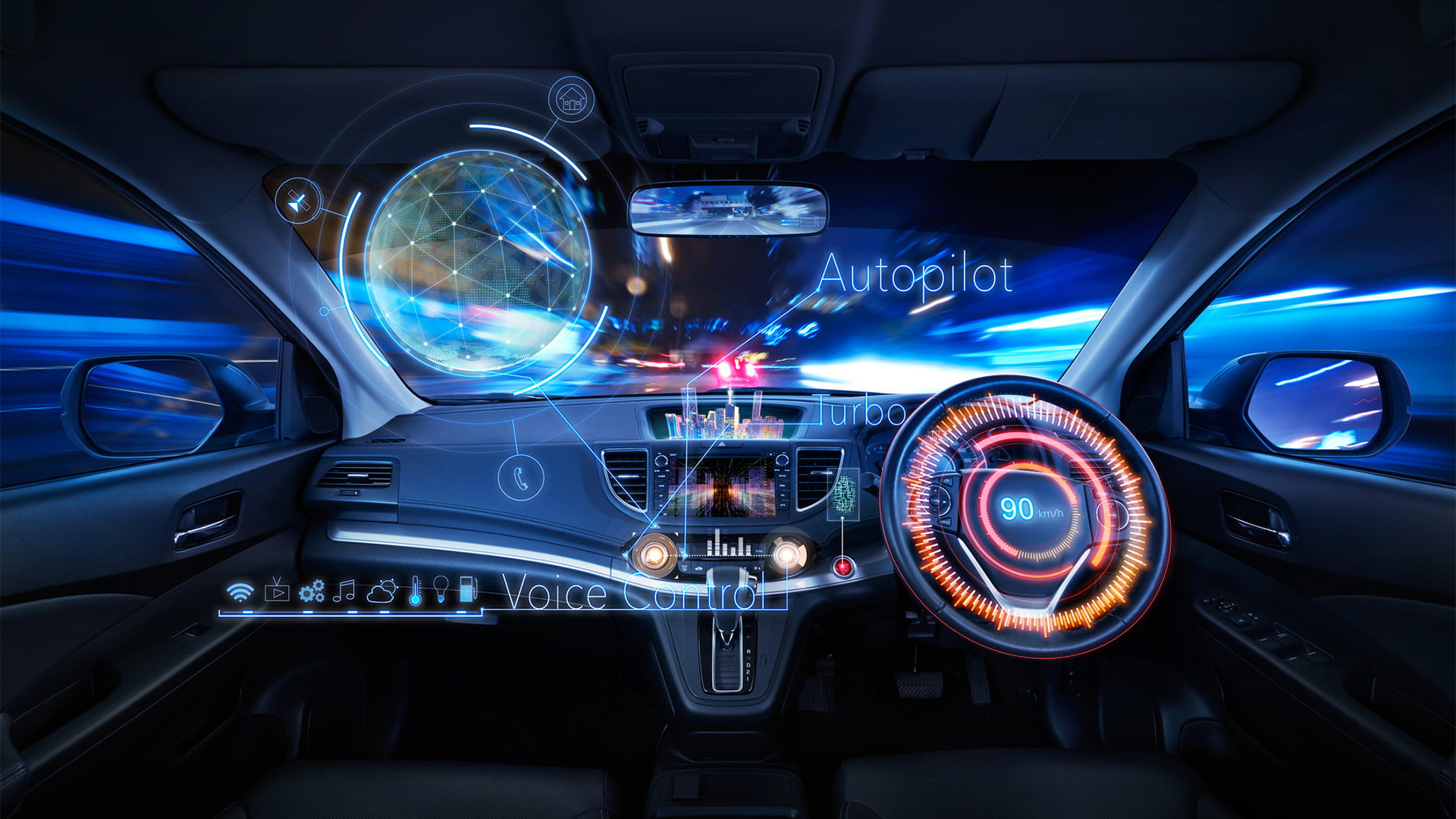
With new legislation arriving that could make it legal for drivers to watch television while behind the wheel of a self-driving car, it might be time to think about how your fleet can adapt to technology which is set to change the way we use vehicles forever.
It’s not yet legal to use self-driving vehicles on UK roads, but drivers already have legal access to plenty of tech that changes their driving experience: from technology that can actively change the course and speed of vehicles, like Automatic Lane Keeping Assist, adaptive cruise control, Autonomous Emergency Braking, to features like satnav and infotainment, your drivers might find themselves surrounded by unfamiliar technology. What training are you providing to ensure that your drivers can comfortably use and benefit from this tech?
The upcoming changes, which come in response to a public consultation, are only likely to be used on slow-moving traffic on motorways for now. The aim of the legislation is to allow drivers to “safely make the most of their vehicle’s capabilities”.
Self-driving vehicles are still illegal on UK roads, so the changes are a demonstration of the UK Government’s eagerness to welcome adoption of self-driving technology, once it is safe to do so. The Government has indicated that it hopes to have a legal framework in place to allow for widespread adoption of self-driving vehicles in place by 2025.
Transport minister Trudy Harrison said: “This is a major milestone in our safe introduction of self-driving vehicles, which will revolutionise the way we travel, making our future journeys greener, safer and more reliable.
“This exciting technology is developing at pace right here in Great Britain and we’re ensuring we have strong foundations in place for drivers when it takes to our roads.
“In doing so, we can help improve travel for all while boosting economic growth across the nation and securing Britain’s place as a global science superpower.”
The Government announced last year that the use of “self-driving” driver assistance systems would be permitted on UK roads.
Under the proposals, drivers of vehicles equipped with autonomous lane-keeping systems (ALKS) would be permitted to use them at speeds up to 37mph on motorways.
Mike Hawes, SMMT chief executive, said that amending The Highway Code to reflect the pace of technological change will help “clarify” what motorists can and can’t do when a self-driving feature is engaged, so promoting its safe use.
He added: “The technology could be available in the UK later this year and, with the right regulations in place, consumers are set to benefit from safer, more efficient journeys while the UK will strengthen its position as a global leader in the deployment of self-driving technology.”
The technology, says the DfT, could improve road safety across Britain by reducing human error, which is a contributory factor in 88% of all recorded road collisions.
Steve Gooding, director of the RAC Foundation, said: “The Highway Code has been updated a number of times in recent years to reflect the rapidly changing transport world we live in and these latest additions will help us all understand what we must and must not do as we move forward to an environment where cars drive themselves.
“The final part of the jigsaw is to ensure these amendments are widely communicated to, and understood by, vehicle owners.
“Vehicle manufacturers and sellers will have a vital role to play in ensuring their customers fully appreciate the capabilities of the cars they buy and the rules that govern them.”
As new legislation changes the way we drive, as a fleet manager, you need to ensure that your drivers are ready for these changes. IAM RoadSmart offer excellent solutions for keeping your fleet trained, educated and low-risk.
The way we drive is set to transform over the coming years, and many drivers of newer vehicles already have sophisticated driving technology at their fingertips. How will you ensure your drivers are familiar with their current technology, law, and ready to adapt as new tech arrives? A Vehicle Familiarisation course, or our flagship, DVSA recognised Driving For Work course could be key to helping your drivers achieve maximum comfort, confidence and safety while surrounded by technology that might have otherwise been intimidating.
Get in touch to learn more.


